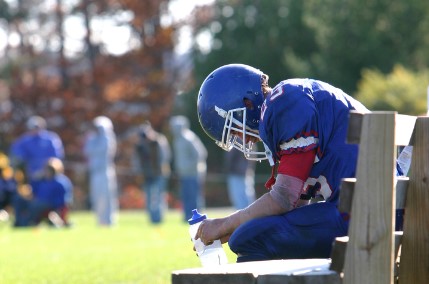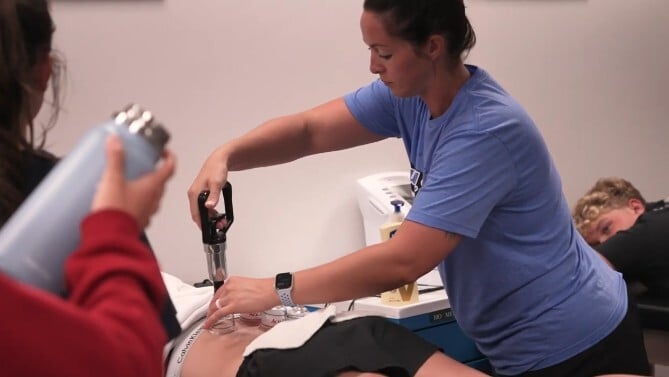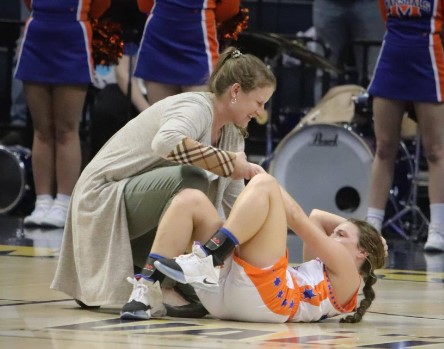Study Challenges Assumptions on Concussion Recovery in College Athletes
 A recent study involving collegiate student-athletes in the United States has shattered long-held beliefs about concussion recovery, revealing that both men and women recover from sport-related head injuries within a similar timeframe.
A recent study involving collegiate student-athletes in the United States has shattered long-held beliefs about concussion recovery, revealing that both men and women recover from sport-related head injuries within a similar timeframe.
 This research, which analyzed medical data from 906 NCAA student-athletes, marks a significant shift in understanding gender differences in concussion recovery.
This research, which analyzed medical data from 906 NCAA student-athletes, marks a significant shift in understanding gender differences in concussion recovery.
Jaclyn Caccese, assistant professor at The Ohio State University School of Health and Rehabilitation Sciences and the senior author of the study, expressed her insights on the findings.
"For many years, we've thought women took longer to recover, but evidence suggests that if women get the same access to care, they do recover similarly.”
The study, published in the journal Sports Medicine, drew its data from the Concussion Assessment, Research and Education (CARE) Consortium, an initiative by the NCAA and U.S. Department of Defense. It included a diverse group of student-athletes in 15 sex-comparable sports, excluding all-male football and wrestling teams and all-female field hockey squads.
Caccese highlighted the importance of this study, especially given the gender imbalance in previous concussion research. Referring to a 2022 review that found a significant lack of female participants in concussion studies, Caccese noted:
"Much of the concussion research came out of football, a predominantly male sport. This study is important because it’s the largest study of concussion recovery in women to date."
The study involved pre-season baseline assessments and post-concussion evaluations, including cognition and memory tests, balance, reaction time, and surveys on health, anxiety, depression, and life satisfaction. Statistical analysis revealed no significant differences in recovery trajectories between sexes, except that women reported more issues with eye and inner ear function shortly after injury.
The research found that women reported higher symptoms at baseline and during recovery, leading to questions about biological and sociocultural factors influencing symptom reporting. Caccese suggested that individual baseline data or sex-specific norms might be necessary for accurate evaluations post-concussion.
Highlighting the disparity in medical attention in high school sports, Caccese pointed out that historically, female athletes might not have received the same level of care as their male counterparts, especially in sports like football. She emphasized the importance of immediate access to sports medicine evaluation and treatment, as seen in the institutions involved in the study, in ensuring swift and effective concussion management.
This study offers a new perspective on concussion recovery, stressing the need for equal access to care and individualized treatment approaches. It also calls for further research to understand the underlying reasons for reported symptom differences and to ensure equitable healthcare provision for all athletes, irrespective of gender.
![HR Logo [Recovered]_Full Color Vertical-1](https://blog.healthyroster.com/hs-fs/hubfs/HR%20Logo%20%5BRecovered%5D_Full%20Color%20Vertical-1.png?width=199&height=178&name=HR%20Logo%20%5BRecovered%5D_Full%20Color%20Vertical-1.png)
 By
By


